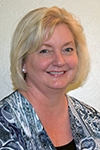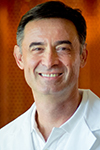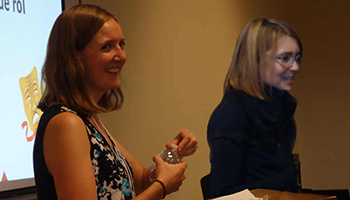The UA Center on Aging’s Lisa M. O’Neill, DBH, MPH, Janko Nikolich-Žugich, MD, PhD, and Rachel Peterson, MPH, made the news recently on three separate topics.
Preventing Elder Abuse
 The UA Center on Aging’s O’Neill, who recently completed her doctorate in behavioral health, was featured as an expert in the “Ask the Expert” section of a Dec. 7 column posted to WalletHub.com on “2016’s States with the Best Elder-Abuse Protections.”
The UA Center on Aging’s O’Neill, who recently completed her doctorate in behavioral health, was featured as an expert in the “Ask the Expert” section of a Dec. 7 column posted to WalletHub.com on “2016’s States with the Best Elder-Abuse Protections.”
The article points out that elder abuse affects as many as 5 million people a year, but 96 percent of cases go unreported. With U.S. Census Bureau figures pointing toward a doubling of the age 65 and over population from 2012 to 2050, it’s predicted the problem will only grow.
Thus, WalletHub’s analysts surveyed all 50 states and the District of Columbia on prevalence, resources and protections. Arizona ranked 22nd overall between Delaware and Texas.
- On prevalence of elder abuse, gross neglect or exploitation complaints, Arizona was 22nd.
- On resources (i.e., expenditures on elder abuse prevention, legal assistance, and long-term care ombudsman program funding), it was fifth.
- On protections (financial laws, forensic centers, frequency of assisted-living facility inspections, quality of nursing homes, number of ombudsmen), it was 46th.
Overall, DC, Nevada, Massachusetts, Wisconsin and Missouri held the top five best combined rankings. South Dakota, Rhode Island, California, Wyoming and South Carolina were worst, according to the survey.
In her section of the survey, O’Neill, who is the UA Center on Aging’s education director and manager of the Arizona Geriatrics Workforce Enhancement Program, was asked about what are the most common types of elder abuse, legal restrictions on caregivers benefiting financially from the death of a person they care for, and what families can do to prevent elderly members from being abused financially.
O’Neill was named the Arizona Geriatrics Society’s 2015 Gerontologist of the Year and has been an appointed member of the Governor’s Advisory Council on Aging, co-founder of the Southern Arizona Hoarding Task Force and leads a cognitive-behavioral therapy course on hoarding dysfunction.
Gerontological Society Officer
 Dr. Nikolich-Žugich, Center on Aging co-director, BIO5 Institute member, and professor and department head for Immunobiology in the College of Medicine – Tucson, is the new section chair of the Biological Sciences Executive Committee of the Gerontological Society of America (GSA). The GSA is the nation’s largest interdisciplinary organization devoted to the field of aging. He assumed the post Nov. 19. Learn more at www.geron.org
Dr. Nikolich-Žugich, Center on Aging co-director, BIO5 Institute member, and professor and department head for Immunobiology in the College of Medicine – Tucson, is the new section chair of the Biological Sciences Executive Committee of the Gerontological Society of America (GSA). The GSA is the nation’s largest interdisciplinary organization devoted to the field of aging. He assumed the post Nov. 19. Learn more at www.geron.org
Mental Health and Hearing Loss
Peterson, a senior health educator, with the Center on Aging, (on left in image below right) participated as a trainer on mental health risks associated with hearing loss at an October event in Douglas for the Arizona Community Health Workers Association (AzCHOW).
 The training was sponsored by the Office of Border Health, US-Mexico Border Health Commission as part of the US-Mexico Border Health Month activities. Collaborators included the UA, Douglas Ventanilla de Salud, SEAHEC, and Mariposa Community Health Center.
The training was sponsored by the Office of Border Health, US-Mexico Border Health Commission as part of the US-Mexico Border Health Month activities. Collaborators included the UA, Douglas Ventanilla de Salud, SEAHEC, and Mariposa Community Health Center.
The training provided insight into how community health workers can support families caring for elders to help them adapt to hearing loss. Topics covered included an overview of how hearing works, symptoms and risks of hearing loss, and how to utilize screenings to diagnose and provide prevention and intervention.
The training focused primarily on age related hearing loss, and provided and strategies for communication that can reduce the sense of isolation and disorientation resulting from barriers to communication.
For more information on training opportunities for community health workers, as well as information on upcoming policy changes that will provide increased opportunity for training and credentialing, subscribe to AzCHOW News, a bi-monthly newsletter providing updates for Arizona's community health workforce.

